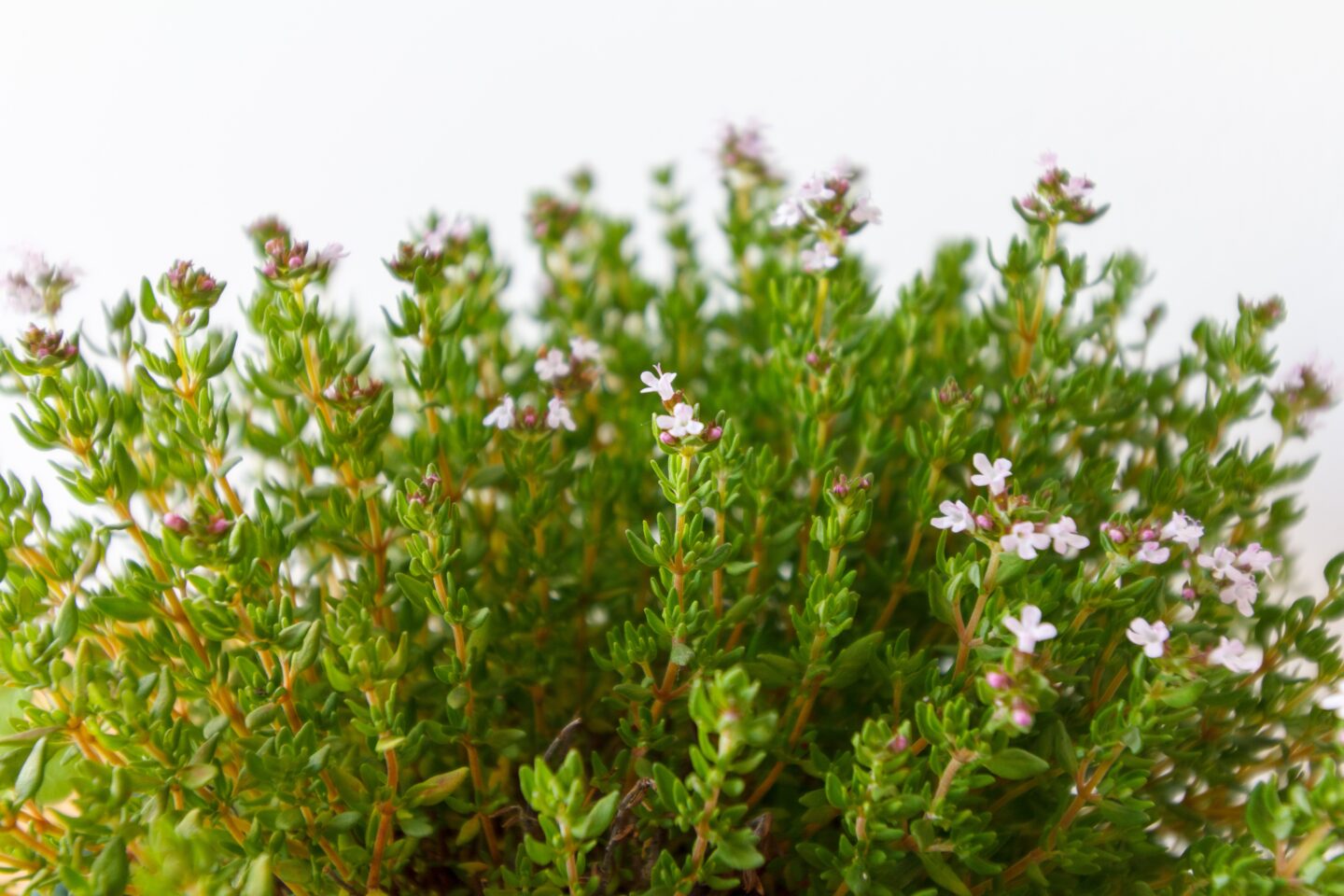Thyme
Thyme (Thymus vulgaris), or garden sand tea, is known as an antibacterial plant for alleviating respiratory problems, because it destroys microbes that cause inflammation there. It has been scientifically confirmed that thyme has a rather strong antiseptic effect, for which thymol is considered responsible. In addition, thyme contains higher amounts of γ-terpinene and p-cymene.
Due to its important antiseptic properties, thyme has been used both in cosmetics and in medicine and, for example, in the composition of cough syrups. The tea has been used for bronchitis and angina. Thyme is also seen as a good remedy for runny noses and stuffy noses. In addition, thyme essential oil and tea have been used externally and on skin and mucous membrane ulcers.
The ancient Greeks associated the plant with Aphrodite, the goddess of beauty, and burned it for sacred smoke. Thymol made thyme a suitable agent for embalming Egyptian mummies. In ancient Rome, thyme’s cleansing properties were believed to help prevent poisoning and were used during the plague. The Romans probably brought thyme with them to Germany and that is how it has reached Estonia as a cultivated plant. In Europe, thyme historically grew in the Mediterranean region and was a well-known plant in the herb gardens of medieval monasteries.
